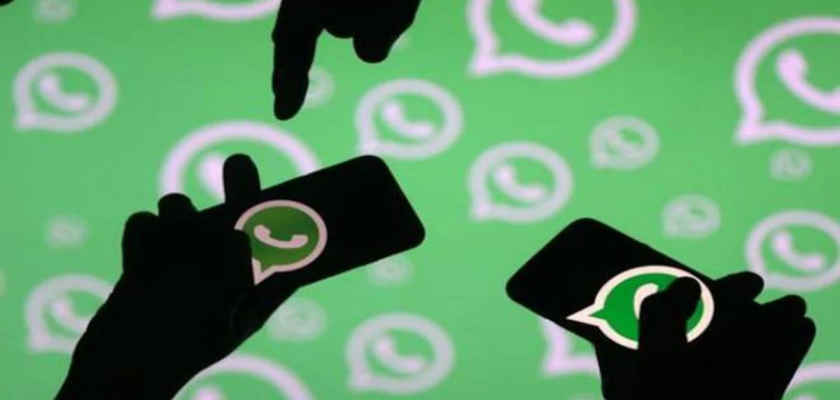Imagine discussing crucial details with your colleagues on your team’s WhatsApp group, when abruptly a random individual joins in. This person now has instant access to data such as the information of group members, as well as the group’s profile picture and name.
This was an actual problem where figuring out your private/personal group chat through Google Search was feasible. The problem was resolved in 2019 but now has arisen again.
The latest report by ISR (Internet Security Researcher) Rajshekhar Rajaharia implies that WhatsApp groups that utilize links to let users access, may again be unsafe to be discovered online. This would theoretically enable anyone to enter the group.
A report by Indian Express confirmed the vulnerability and can confirm that a few WhatsApp groups might be connecting from the web.
Authorizing WhatsApp Group Messages to be indexed enables these links for personal groups over the web to be sought after and entered. This lets searchers locate the phone numbers of users with the profile images.
Should nobody mark these uninvited records into the group, the guest could then continue covered for some time till someone understands his or her presence. What is more dangerous is that even after these guests are kicked out of the group. Their small record still gives them the numbers in the group.
Highlights of Contents
This is what WhatsApp statement:
“Since March 2020, WhatsApp has included the “noindex” tag on all deep link pages which, according to Google, will exclude them from indexing. We have given our feedback to Google to not index these chats.
As a reminder, whenever someone joins a group, everyone in that group receives a notice and the admin can revoke or change the group invite link at any time. Like all content that is shared in searchable, public channels, invite links that are posted publicly on the internet can be found by other WhatsApp users.
Links that users wish to share privately with people they know and trust should not be posted on a publicly accessible website.”
Even User Profiles are Now Indexed on Google
The problem is not with group invite links but with individual user account profiles. URLs of individual’s profiles can be searched on Google. This lets guests access the profiles of those indexed, showcasing their mobile numbers, and in a few cases, their profile images as well.
This problem occurred before too and was fixed in June 2020.
Will WhatsApp Share Your Texts with Facebook?
No. The privacy policy doesn’t become the means WhatsApp treats private chats. WhatsApp will stay end-to-end encrypted and no third-party can see them.
WhatsApp, in a statement, said, “The update does not change WhatsApp’s data-sharing practices with Facebook and does not impact how people communicate privately with friends or family… WhatsApp remains deeply committed to protecting people’s privacy.”
What Data will WhatsApp Share with Facebook?
Data exchange with Facebook is already happening. While people in the European Union can choose data-sharing with the tech giant, Facebook, the rest of the globe doesn’t have a similar choice.
WhatsApp shares this information with Facebook and its other organizations:
- Account registration information (phone number)
- Transaction data (WhatsApp now has payments in India)
- Service-related information
- Information on how you interact with others (including businesses)
- Mobile device information
- IP address.
Why Does Information Exchange with Facebook Matter?
The policy provides factors for the data-sharing with Facebook: from combating spam to enhancing user experience to guaranteeing better protection, which was similar to the previous policy too.
Nevertheless, the new policy is an additional sign of the deeper integration of WhatsApp into the Facebook association of organizations. In 2019, CEO Mark Zuckerberg spoke about his cross-platform concept across WhatsApp, Instagram, and Facebook Messenger — he called it “interoperability”.
The direct messages of Instagram and Facebook Messenger have been incorporated already. Facebook wishes to carry more solutions to WhatsApp and has joined a feature, namely Rooms. The combination has been happening for a while now.
Does it Imply WhatsApp Will Utilize Your Data for Advertisements?
WhatsApp does not display ads yet, and the related plans seem to have been suspended. In case you are concerned that private messages will be utilized to aim ads on WhatsApp, then you must know that won’t happen since they are encrypted.
However, the enhanced data distribution with Facebook is going to be utilized to grow ad experience over other products of the corporation.
Is WhatsApp Saving Messages?
No, as said by WhatsApp. As per the privacy policy, as soon as a message is addressed, it is “deleted” from the organization’s servers. The chatting app stores a message merely while it “cannot be delivered immediately” — the message can remain on its servers “for up to 30 days” in an encrypted or secured form as WhatsApp proceeds to attempt to forward it. If undelivered after 30 days, the text is deleted.
What Does the Policy State About Information Shared with Businesses?
The new policy describes how companies get information when an individual communicates with them: content distributed with a company on WhatsApp is going to be noticeable to “several people in that business”.
The policy says that some “businesses might be working with third-party service providers (which may include Facebook) to help manage their communications with their customers”. To understand how the business is handling the information you share with them, WhatsApp recommends that users read the “business’ privacy policy or contact the business directly”.
Do You Have to Accept the Privacy Policy?
Yes, this is a common practice for several tools. In case you don’t wish to, you can eliminate your account and change to another service.
Several people appear to be turning to Signal from WhatsApp. It is another application, which is end-to-end encrypted and free and has earned a reputation push in the knowledge of the latest WhatsApp policy.
WhatsApp utilizes the protocol of Singal for its encryption. However, Signal is not owned by any company and is managed by a nonprofit.
